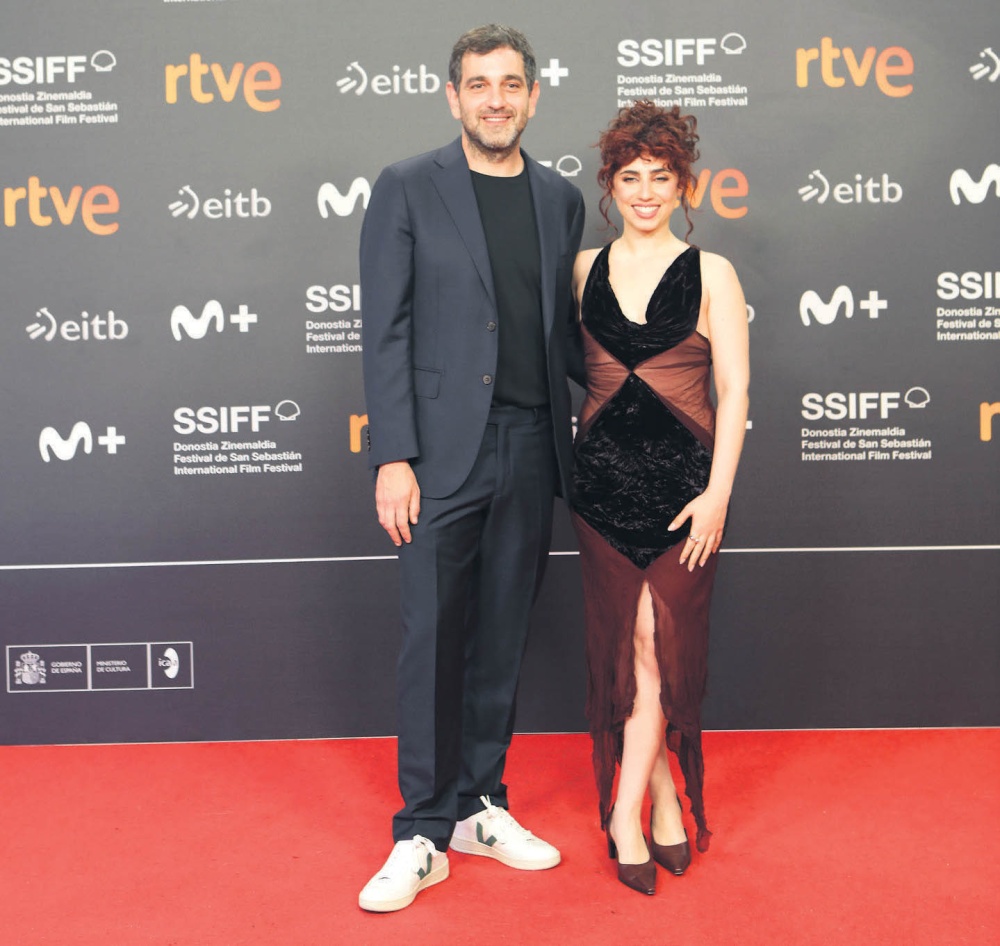In what has become a regular event at major film festivals since January, members of the international film community convened Sept. 24 for a protest led by the San Sebastian Festival in support of Argentina’s flailing audiovisual industry.
The protests have been in response to the draconian measures taken by its right-wing government, led by Javier Milei, who took over as president in December last year amid a galloping 200% inflation rate.
Before a rambunctious crowd that sang a protest song and clapped in unison behind him, Festival director José Luis Rebordinos declared: “The San Sebastián Film Festival wishes to express its solidarity with the Argentine film industry in light of the exceptional situation it faces, including the halt of many projects, the depletion of content from the INCAA, and the measures being taken by the current government that jeopardize the development, not only of its film industry but other expressions of its culture.”
He pointed out that the Festival’s support did not constitute any interference in Argentina’s political affairs: “For years, we have collaborated with an INCAA that has been led by various political parties—whether conservative, liberal or Peronist. Throughout these administrations, with their unique characteristics defined by the Argentine citizenry, the film industry has managed to develop normally, becoming one of the most significant in Latin America, projecting a positive image of the country and acting as its economic driving force.”
Other countries’ film industries in the region are also suffering headwinds, Rebordinos reminded the crowd, citing Venezuela’s filmmakers, many of whom are struggling in exile
Also there in solidarity was Scottish-born Brazilian producer Daniel Dreifuss, whose All Quiet on the Western Front took home four Oscars last year. “Everyone who believes in culture, in diversity and in people having a voice would have PTSD from the Bolsonaro years,” he told Variety, adding: “But we must also understand that his vision of the world that he left remains. We have to be vigilant in Brazil, in Latin America and the world at large to protect democracy and culture.”
Mindful that these acts remain symbolic and will unlikely sway Milei’s government, Argentine Academy president Hernan Findling told Variety that INCAA is “alive but recovering.” “It will only be supporting films that attract at least 10,000 admissions, which could help medium to large producers,” he said, adding that auteur filmmakers are in jeopardy. “They are lowering inflation but at the cost of culture, education and health,” he said, adding that there are bound to be few Argentine films out next year
Former Mar del Plata festival head, Fernando Juan-Lima, a juror at San Sebastian’s Horizontes Latinos sidebar, pointed out that he and his entire team resigned and that he has not been replaced at the region’s only Category A festival. He said that the festival made great strides these past years, and “Society in the Snow” director J.A. Bayona even wanted to return, offering to pay his own way. “That’s something money can’t buy,” he mused.
The San Sebastian and Malaga festivals will also present six Spanish films in Buenos Aires over Nov. 27 to Dec. 1, and at Montevideo’s Ventana Sur, over Dec. 2-6.
Anna Marie de la Fuente





